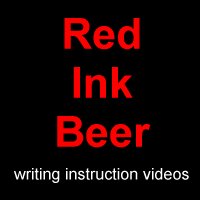 Academic and technical writing are far different than literary writing, such as novels and poetry. The primary purpose of academic and technical writing is to provide information about a defined topic to a specific audience. Whether you write graduate papers, professional journal articles, dissertations, white papers, manuals, websites, reviews, or similar documents, you are writing academic or technical documents.
Academic and technical writing are far different than literary writing, such as novels and poetry. The primary purpose of academic and technical writing is to provide information about a defined topic to a specific audience. Whether you write graduate papers, professional journal articles, dissertations, white papers, manuals, websites, reviews, or similar documents, you are writing academic or technical documents.
Academic and technical writing can be bad writing. They can be complicated, tedious, and confusing. They can be terribly boring. Unfortunately, bad academic and technical writing is common (which makes bad writers nearly indistinguishable from their crowd of peers).
Why do people write badly? Possibly, they think the writing is supposed to be dull and confusing, or perhaps they think it sounds more professional. Maybe they have read a lot of poor writing, so when they review their writing, it sounds “right.”
On the other hand, academic and technical writing can be good writing. They can be clear and straightforward, logical, persuasive, and useful. They can be wonderfully interesting. Unfortunately, good writing is uncommon (which makes good writers stand out from their peers).
Why do people write well? Possibly, they think the writing is supposed to be clear and easy to use, or perhaps they are thinking about the readers’ needs more than their own knowledge. Maybe, they have read a lot of good writing, so when they review their writing, it sounds “right.”
Think objectively about your attitudes about writing and critically about your writing skills. Completely bad and perfectly good writing don’t exist, but where do you fall on the spectrum between good and bad academic and technical writing?
Writers have to attend to many strategies, concepts, and “rules” to produce good writing, but good writing is not magic. It contains definable steps that are not only specific but also broadly applicable. If you want to move towards the “good” end of the spectrum, pick up a copy of Concise Guide to Technical and Academic Writing, available in print and various ebook formats at http://HostileEditing.com. Major strategies addressed in the book are as follows:
- Core principles of good writing;
- Writing style, with subtopics of formality, complexity, objectivity, and depth;
- Direct writing, with subtopics of subjects, main verbs, and verb voice;
- Concise writing, with subtopics of combining expressions and sentences; simplifying descriptions, removing unnecessary language;
- Sentence structure, with subtopics of sentence parts, academic sentence patterns, and transitions;
- Paragraph structure, with subtopics of paragraph purpose and structure;
- Writing mechanics, with subtopics of commas(!), other punctuation, grammar, and word usage;
- Document-level concepts, with subtopics of structure, components, attribution, tables, and formatting.
Overall, the definition of good writing is this: writing that achieves its intended purpose. When you write, you have a purpose, a goal to accomplish. Perhaps you want to demonstrate expertise, get a good grade, inform the reader, or advance a cause. Regardless of the purpose, you will only achieve it by writing well. And that, ultimately, is the reason for academic and technical writing.
Free E-book to Improve Your Writing Skills
Get the free e-book (PDF) OR
Purchase the Kindle version ($0.99).





Good academic writing is rare, partly because a lot of manuscripts are written by people with muddled thinking. But I find among many graduate students and post-docs—especially in the sciences—a contempt for writing that entertains while it informs. Also, most people don’t edit ruthlessly.
@ bharatwrites – good point!
Academic writing doesn’t need to entertain, but it can be interesting to the reader. An interested reader will pay better attention to the content.
You should give away a free copy of the book to ALL authors of WordPress books — I have NOT YET found any of them who can write well!
Of course you know about ‘leading horses to water’!
@ Rayleiter – Everyone is welcome to download a free copy of Your Writing Companion, which contains instruction from all of the books.